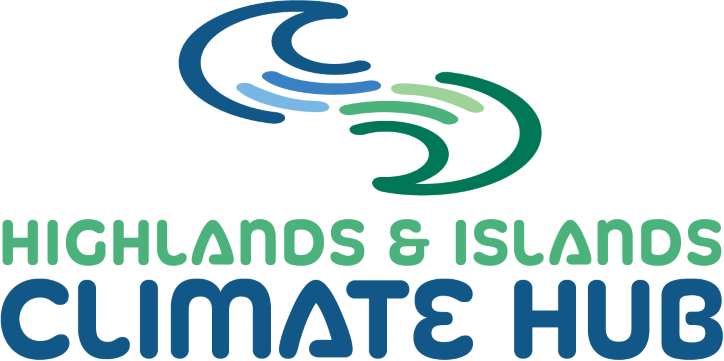Introduction to Carbon Neutral Islands
Paul, our Community Engagement Officer for Orkney and Shetland, has written an introductory blog to the Carbon Neutral Islands projects, outlining what they are, the aims of the project, and their relationship with the Hub.
The Carbon Neutral Islands (CNI) project is a Scottish Government Programme for Government commitment to climate action and reaching net zero, focusing on the following six islands:
Image Credit: Community Energy Scotland
Barra and Vatersay
Cumbrae
Hoy and Walls
Islay
Raasay
Yell
Three of these six islands are within the Highlands & Islands Climate Hub geographic region: Yell, Hoy & Walls, and Raasay.
The programme is aimed at supporting the islands to become carbon neutral by 2040, which is earlier than the national aim of 2045.
In the first phase of activity, baseline carbon audits were carried out for each island to identify key carbon sources and sinks. This information was then used to stimulate discussion and engagement with the local community. These discussions have helped to identify and shape the key community priorities which have been presented in island-led Community Climate Action Plans for the six islands to lower emissions and improve resilience.
Although not originally involved with the project, the Hub is set to support the work of the CNI project and share the learning with our members. The core principles of the CNI project, and the reasons for the Highlands & Islands Climate Hub being in full support, are as follows:
The project takes an island-led approach. It’s all about the communities leading and doing it for themselves rather than having something done to them.
The drivers underpinning the project, that are:
Alignment – Avoiding the duplication of existing activity.
Justice and inclusion – Ensuring that islands become carbon neutral in a just and fair way.
Replicability – Wherever possible the work on the six islands is being completed to standardised and agreed methodologies to allow direct comparison. The six islands will become ‘Lighthouse Communities’ for all Scottish islands - and mainland communities -through the sharing of knowledge and good practice, and this process will be directly supported by the Highlands and Islands Climate Hub.
And all of the above feeds into the following aims by 2040:
Each of the six island communities will have achieved carbon neutrality.
The net zero journey has been driven by each of the six island communities.
Learnings from the six CNI islands are used to influence the Scottish Government Islands Team, Local Authorities, Climate Regional Hubs and the Islands Centre for Net Zero and help to develop resources to support other Scottish islands on their decarbonisation journeys.
In addition to increasing climate resilience, the project aims to improve quality of life, create employment opportunities, increase skills and capacity within the community-led sector, and improve the sustainability of the community.
Photo Credit: Katharine O’Driscoll
The project is co-ordinated and driven on the ground by a Community Development Officer (CDO) on each island (and two on Raasay). It is their job to act as a link between the local steering group and community, and external agencies involved in the project, supported by Community Energy Scotland. Here is a flavour of the priorities identified by each of the communities in their Community Climate Action Plans (I’ve included three priorities from each island, although some identified up to five priorities and these can be found in their respective Community Climate Action Plans):
Barra & Vatersay
Better manage household and business energy usage and efficiency.
Feasibility study into meeting islands’ food needs locally.
Encourage improved access to public, electric, and active transport.
Cumbrae
Warmer homes, lower energy bills and reduction of fuel poverty.
More sustainable transport, particularly the ferry route and a reduction in the number of private vehicles.
Nature-based solutions and habitat restoration.
Hoy & Walls
Community green transport scheme.
Support the call for the improvement of Orkney Islands Council recycling facilities at Lyness, including the feasibility of a household collection service.
Community garden.
Islay
Improvements to Islay’s electricity grid capacity and increased local generation to allow for the necessary transitions to decarbonise multiple sectors.
Widespread improvements to Islay’s public transport availability to reduce emissions and improve travel options for locals and visitors.
Further research into land use carbon flows, and support for a just transition.
Raasay
Insulating and retrofitting houses.
Examining the feasibility of meeting the island’s food needs locally.
Examining the feasibility of renewable projects.
Yell
Investigating the possibility of tunnels from Yell to Shetland Mainland instead of ferries.
Establishing community hubs for food, warmth and information during power cuts, communication failures and weather events.
The improvement of housing stock to increase energy efficiency, with an emphasis on measures which also increase available housing stock.
Project planning is being undertaken to map out a pathway to achieving the desired outcomes of each island’s plan, including full costings and community investment strategies to help fund the required actions where necessary. The ‘Next Steps’ section of each plan includes more detail on how this will be undertaken – the What, Who, How and When of the road ahead.
Community Climate Action Plans are under regular review by the local CNI steering group, and adapted when appropriate, in order to keep focused on lowering the greenhouse gas emissions of the islands. An accurate record of this process will improve the replicability of the project as it spreads beyond the original six islands and encompasses all of Scotland’s island communities.
Have questions or want to learn more? Join Chrissie, our Senior Development Officer, for the Hub’s ‘Introduction to Carbon Neutral Islands’ session on Thursday 21 September 2023.
The event will take place online from 3-4pm and special guests from Carbon Neutral Islands – Raasay are coming along to share their knowledge and experience. It’ll be an opportunity to get inspired and make connections!
Keep an eye out for future blogs and updates from Paul, our Orkney & Shetland Community Engagement Officer, about the exciting activities of Carbon Neutral Islands projects.



